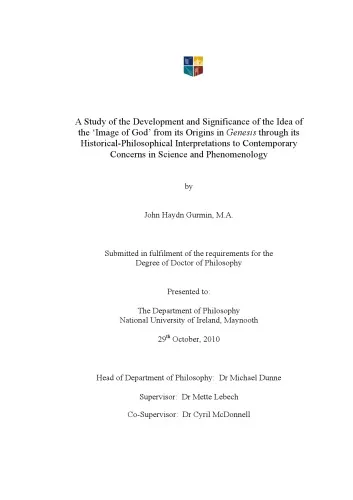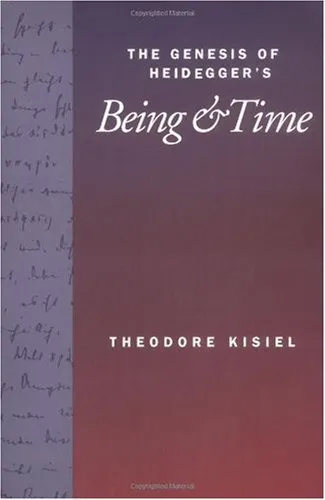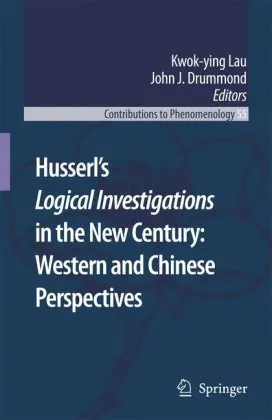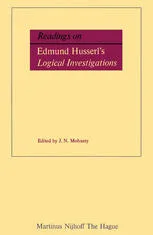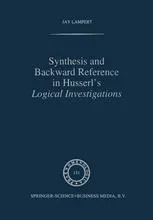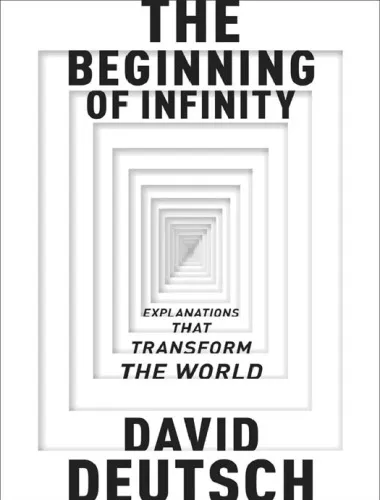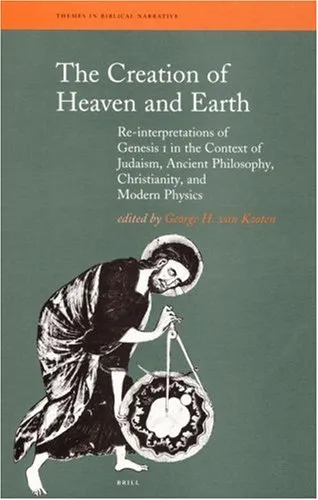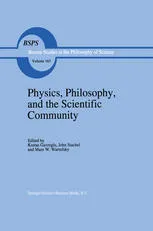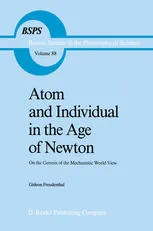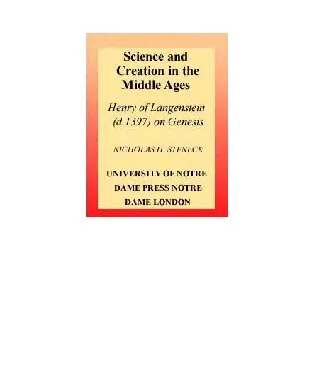A Study of the Development and Significance of the Idea of the ‘Image of God’ from its Origins in Genesis through its Historical-Philosophical Interpretations to Contemporary Concerns in Science and Phenomenology
4.5
بر اساس نظر کاربران

شما میتونید سوالاتتون در باره کتاب رو از هوش مصنوعیش بعد از ورود بپرسید
هر دانلود یا پرسش از هوش مصنوعی 2 امتیاز لازم دارد، برای بدست آوردن امتیاز رایگان، به صفحه ی راهنمای امتیازات سر بزنید و یک سری کار ارزشمند انجام بدینکتاب های مرتبط:
معرفی کتاب
کتاب "A Study of the Development and Significance of the Idea of the ‘Image of God’" اثری پژوهشی جامع و عمیق است که به بررسی مفهوم «Image of God» در زمینههای تاریخی، فلسفی، علمی و پدیدارشناسی میپردازد. این اثر تلاش میکند تا ریشههای پیدایش این ایده در کتاب پیدایش (Genesis) را کاوش کرده و تاثیر تحولات آن را بر تاریخ و اندیشه بشری بررسی کند. با ادغام مطالعات بینرشتهای، این اثر همزمان بررسی مذهبی، فلسفی و علمی دارد و تلاش میکند به سوالاتی بنیادین پیرامون ماهیت هویت انسانی و جایگاه آن در جهان پاسخ دهد.
خلاصه تفصیلی کتاب
کتاب در چندین بخش اصلی نوشته شده است که هر بخش به طور خاص به یکی از جنبههای ایده «Image of God» پرداخته است. در بخش آغازین، نویسنده ریشههای کتاب مقدسی این ایده را بررسی میکند. بررسی آیات پیدایش و نحوه معرفی این مفهوم مورد توجه قرار میگیرد. سپس در بخشهای میانی، تاثیرات تاریخی و فلسفی این ایده در قرون مختلف مورد ارزیابی قرار میگیرد؛ از تاثیر آن در اندیشه ارسطو و افلاطون گرفته تا نگاههای معاصر فیلسوفانی همچون هانا آرنت و امانوئل لویناس.
در ادامه، نویسنده به سمت بررسی علمی حرکت کرده و رابطه میان ایده «Image of God» و پیشرفتهای علوم مدرن را مورد بحث قرار میدهد. پدیدههایی همچون Neuroethics و هوش مصنوعی (Artificial Intelligence) از جمله موضوعاتی هستند که در این بخش مورد تحلیل قرار میگیرند. در نهایت، نویسنده با بهرهگیری از دیدگاههای Phenomenology، به ویژه اندیشههای ادموند هوسرل و موریس مرلو-پونتی، معنای جدیدی از این مفهوم را ارائه میدهد که برای انسان معاصر مناسبتر است.
درسهای کلیدی کتاب
- بررسی دقیق و علمی مفهوم «Image of God» در کتاب مقدس و نقش آن در شکلگیری هویت انسانی.
- تحلیل تاثیرات گسترده این ایده بر فلسفه، تاریخ و علوم اجتماعی.
- رویکرد انتقادی و تطبیقی نسبت به ایدههای مذهبی، فلسفی و علمی درباره انسان.
- آشنایی با مطالعات Phenomenology به منظور دریافت جدیدی از "Image of God".
- درک رابطه میان مفاهیم مذهبی کلاسیک و چالشهای مدرن مانند اخلاق زیستی و هوش مصنوعی.
جملات مشهور در کتاب
"The ‘Image of God’ is not merely a theological idea but a lens through which humanity has sought to understand its place within the cosmos."
"Science and Phenomenology reveal that the ancient conceptions of Genesis are tools to bridge the gap between spirituality and rationality."
"Understanding the ‘Image of God’ is to understand the ethical implications of human existence amidst technological advancements."
چرا این کتاب مهم است؟
کتاب "A Study of the Development and Significance of the Idea of the ‘Image of God’" نه تنها برای متخصصان دین، فلسفه و تاریخ اهمیت دارد، بلکه برای هر کسی که به معنای هویت انسانی در جهان معاصر علاقهمند است، اثری ضروری است. با پرداختن به موضوعاتی که به نحوه تعامل انسان با تکنولوژی، علوم جدید و ارزشهای اخلاقی معاصر مرتبط است، کتاب به یک گفتگو بینالمللی و بینرشتهای را تشویق میکند. همچنین، این اثر با استفاده از رویکردهای پدیدارشناختی، دیدگاههای تازهای را برای مواجهه با بحرانهای معنایی و اخلاقی جهان امروز ارائه میکند.
این اثر ترکیبی بینظیر از سنت و نوآوری است که تلاش دارد پلی میان گذشته و حال ایجاد کند. ادغام رویکردهای تاریخی، فلسفی، علمی و پدیدارشناسی این امکان را به خواننده میدهد که مسائلی عمیق و محبوب پیرامون بشر و معنای هستی او را از زوایای مختلف بررسی کند.
Introduction
The concept of the "Image of God" has served as one of the most profound and influential ideas in the history of human thought. From its origins within the sacred texts of Genesis to its subsequent interpretations by theologians, philosophers, and scientists, this notion has shaped the cultural, moral, and existential identity of humanity. A Study of the Development and Significance of the Idea of the ‘Image of God’ explores this multifaceted concept, tracing its journey across millennia, diverse disciplines, and evolving paradigms.
This book is a comprehensive examination not only of the biblical and historical roots of the "Image of God" but also of its powerful interdisciplinary relevance today. While many studies have been limited to theological perspectives, this work bridges gaps between theology, philosophy, science, and phenomenology, showcasing how this ancient concept continues to inspire and challenge contemporary understandings of human potential, freedom, and dignity.
By analyzing various interpretations of the "Image of God," the book offers insight into how this idea has been redefined over time, reflecting shifting human concerns. From classical thinkers such as Augustine and Aquinas to modern philosophers like Immanuel Kant and the existentialists, the "Image of God" has mirrored humanity's enduring quest for meaning. Even more compelling is its transition into contemporary discourse, where fields like genetics, artificial intelligence, and phenomenology grapple with its implications for personhood, ethics, and technology.
This introduction outlines the key elements of the book, providing readers with a roadmap to understanding the depth and breadth of ideas explored within its pages. Below, you'll find a detailed summary, key takeaways, excerpts of some memorable quotes, and an explanation of why this book is significant in today's world.
Detailed Summary of the Book
The book is divided into three primary sections, each addressing a specific dimension of the "Image of God":
- Part I: Biblical Foundations: This section explores the origins of the concept within the Genesis narrative. By examining the Hebrew term "tselem Elohim" ("Image of God") within its historical and cultural contexts, readers gain a foundation for understanding how early Israelite thought conceptualized human uniqueness in creation.
- Part II: Historical and Philosophical Interpretations: Here, the book surveys how the "Image of God" has been interpreted across various epochs, from Patristic theology and scholasticism to Enlightenment-era philosophy. Special attention is given to the dynamic tensions between spiritual and physical interpretations of the image.
- Part III: Contemporary Concerns: The final section addresses how the "Image of God" intersects with modern science (particularly in genetics and artificial intelligence) and phenomenology. These chapters probe into issues of human identity, technological ethics, and the ongoing search for meaning in an increasingly mechanized world.
By the end, readers will have traversed a diverse intellectual landscape, gaining an appreciation for how the idea of the "Image of God" has shaped and been shaped by human inquiry.
Key Takeaways
- The "Image of God" provides a theological foundation for universal human dignity and moral responsibility.
- Throughout history, interpretations of the concept often reflect broader philosophical or cultural shifts (e.g., spiritual dualism, rational autonomy, existential freedom).
- Modern advances in science and technology, such as AI and genetic engineering, demand a re-evaluation of the idea of human uniqueness and responsibility.
- Phenomenological approaches to understanding what it means "to be" human extend the "Image of God" beyond traditional frameworks of thought.
Famous Quotes from the Book
"The 'Image of God' is not merely a static attribute but a dynamic calling, one that invites humanity into participation with creation, morality, and transcendence."
"To inquire into the 'Image of God' is not simply to ask about humanity’s distinction, but to confront the very reality of what it means to be human."
Why This Book Matters
In a world deeply affected by rapid technological and social change, the exploration of what it means to be human has never been more critical. The notion of the "Image of God," while ancient, remains indispensable for addressing contemporary ethical, existential, and scientific questions. This book not only provides a rich historical and philosophical grounding but also connects this timeless idea to the challenges and opportunities of the modern age.
Whether you are a theologian seeking clarity, a philosopher pondering human identity, or a scientist navigating the ethical implications of your work, this book invites you into a dialogue that transcends disciplines. By bridging the past and present, tradition and innovation, readers will emerge with a deeper understanding of themselves and the world they inhabit.
دانلود رایگان مستقیم
شما میتونید سوالاتتون در باره کتاب رو از هوش مصنوعیش بعد از ورود بپرسید
دسترسی به کتابها از طریق پلتفرمهای قانونی و کتابخانههای عمومی نه تنها از حقوق نویسندگان و ناشران حمایت میکند، بلکه به پایداری فرهنگ کتابخوانی نیز کمک میرساند. پیش از دانلود، لحظهای به بررسی این گزینهها فکر کنید.
این کتاب رو در پلتفرم های دیگه ببینید
WorldCat به شما کمک میکنه تا کتاب ها رو در کتابخانه های سراسر دنیا پیدا کنید
امتیازها، نظرات تخصصی و صحبت ها درباره کتاب را در Goodreads ببینید
کتابهای کمیاب یا دست دوم را در AbeBooks پیدا کنید و بخرید
1475
بازدید4.5
امتیاز0
نظر98%
رضایتنظرات:
4.5
بر اساس 0 نظر کاربران
Questions & Answers
Ask questions about this book or help others by answering
No questions yet. Be the first to ask!
